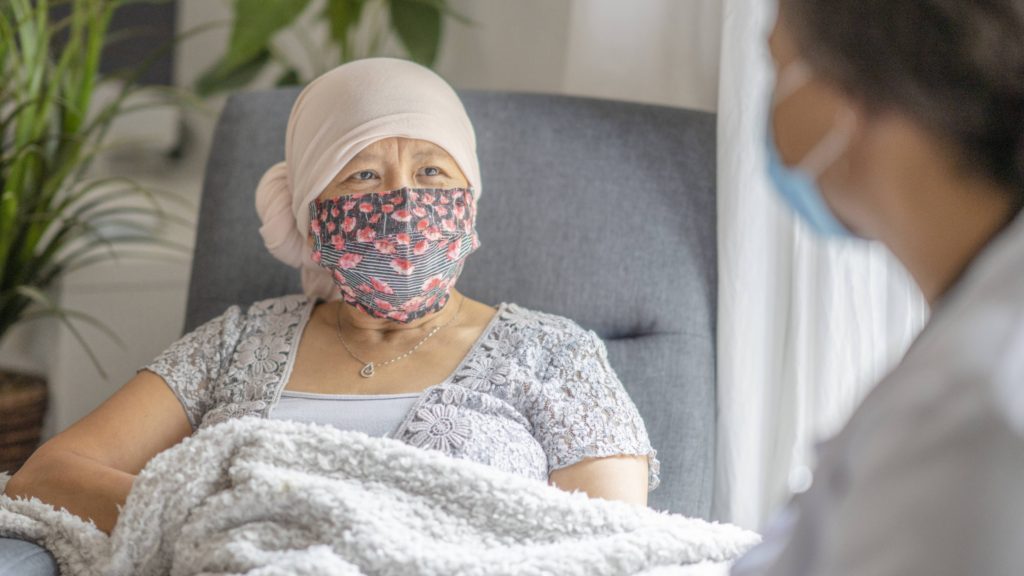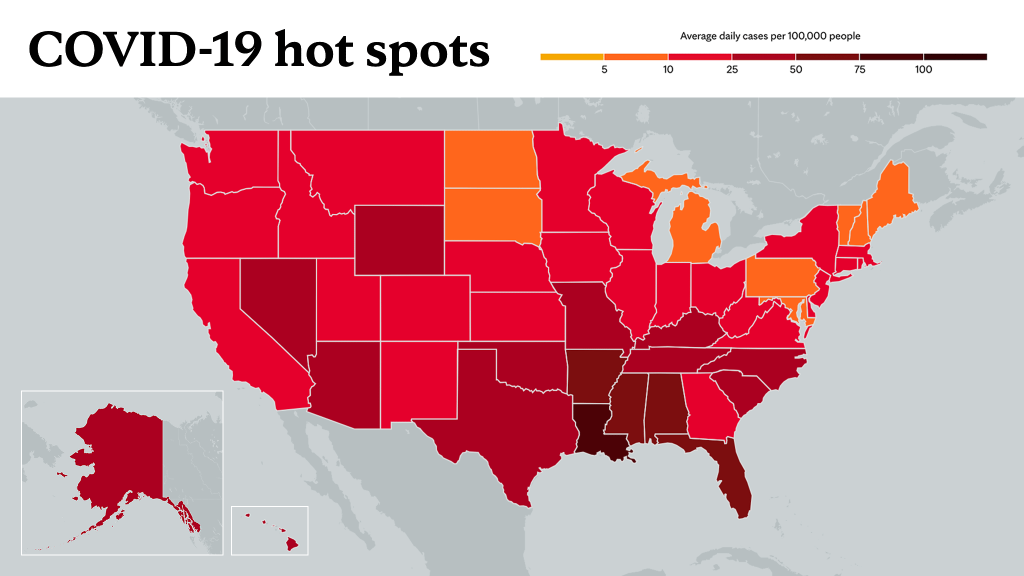
The Food and Drug Administration (FDA) has approved emergency use authorization (EUA) for a third COVID-19 vaccine dose or booster shot of the Pfizer and Moderna COVID-19 vaccines for moderate to severe immunocompromised people who are 12 and older. The Centers for Disease Control and Prevention (CDC) and Advisory Committee on Immunization Practices are meeting throughout today (Friday) to further discuss recommendations for booster vaccines for these individuals.
"The reason that immunocompromised people will need an additional vaccine is that their immune systems don't respond as well to the initial doses of the vaccine and the response they do have wears off over time," says Dr. Melanie Swift, co-chair of Mayo Clinic's COVID-19 Vaccine Allocation and Distribution Work Group.
Immunocompromised people account for approximately 2.7% of U.S. adults, according to the CDC. This means they have a weakened immune system.
"This means the immune system is not competent to fight off infections. This could be due to a disease or medication," says Dr. Swift. "People with a weakened immune system have a more difficult time fighting off infection than a healthy person."
Immunosuppressed is often used to describe immunocompromised.
"Immunosuppressed means basically the same thing, but it usually refers to taking a medication that suppresses the immune system," Dr. Swift explains.
The immune system's role is to protect the body by staving off disease-causing germs, viruses and parasites, as well as cell changes that could lead to disease, such as cancer. The system is a complex network made up of organs, tissues, cells and proteins throughout the body.
People can be immunocompromised for various reasons. Patients may have certain diseases, or the use of medications or medical treatments may suppress a person's immune system, such as:
- Chronic Lymphocytic Leukemia.
- Chronic Myeloid Leukemia.
- Advanced or untreated HIV/AIDS.
- Certain genetic disorders, such as congenital agammaglobulinemia or congenital immunoglobulin A deficiency.
- Anti-cancer drugs.
- Post transplant medications.
- Immunosuppressant drugs used for autoimmune conditions.
- Corticosteroids at high doses.
Treatments may include bone marrow transplant, radiation therapy, solid organ transplant (due to the medications used) or hemodialysis.
The most important way to help those who are immunocompromised or immunosuppressed is to get vaccinated for COVID-19.
"The COVID-19 vaccines are highly effective in preventing severe disease and hospitalization, which is especially important in high-risk patients. With the current spread of the delta variant, high community vaccination rates have never been more crucial. If you haven't had your first dose yet, now is the time," says Dr. Swift.
The Mayo Clinic COVID-19 Vaccine Allocation and Distribution Work Group is planning to administer booster doses of COVID-19 vaccines to Mayo Clinic patients and staff when approved by federal and state authorities.
________________________________________
For the safety of its patients, staff and visitors, Mayo Clinic has strict masking policies in place. Anyone shown without a mask was either recorded prior to COVID-19 or recorded in a nonpatient care area where social distancing and other safety protocols were followed.
Information in this post was accurate at the time of its posting. Due to the fluid nature of the COVID-19 pandemic, scientific understanding, along with guidelines and recommendations, may have changed since the original publication date.
For more information and all your COVID-19 coverage, go to the Mayo Clinic News Network and mayoclinic.org.
Learn more about tracking COVID-19 and COVID-19 trends.








